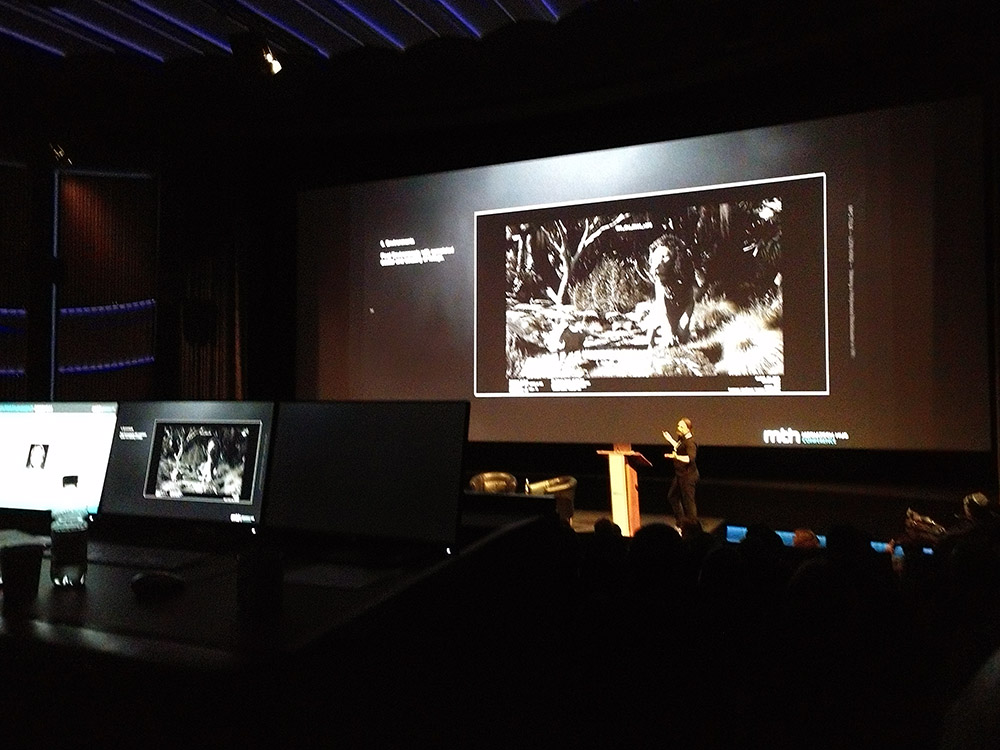After having established a common presentation platform for three formerly separated convention formats in 2018, this year’s MediaTechCon edition streamlined the event for more Studio Babelsberg related topics. An Entertainment Track showcased actual developments in digital film production, whereas an Industry Track gave insights on technological backgrounds and marketing trends. VRNow celebrated another annual award ceremony for virtual reality developments. But last year’s impressive presentation hall with all the nominated VR works on site was now being replaced by brief video introductions. VR falls flat at MediaTechCon 2019.
Virtual Production makes entensive use of VR technology for preparing and even shooting a digital film today. Disney’s remake of the 2D animation classic Lion King into a fully computer generated photorealistic film was mainly achieved with game engine technology and realtime animation tracking. A detailed lecture on the preproduction and planning process of this upgraded animation work pointed to numerous implementations of VR technology. And this reminded the early Virtual Studio developments of the late 1990s, now being applied to fully realistic landscapes and stunning believable animal characters.
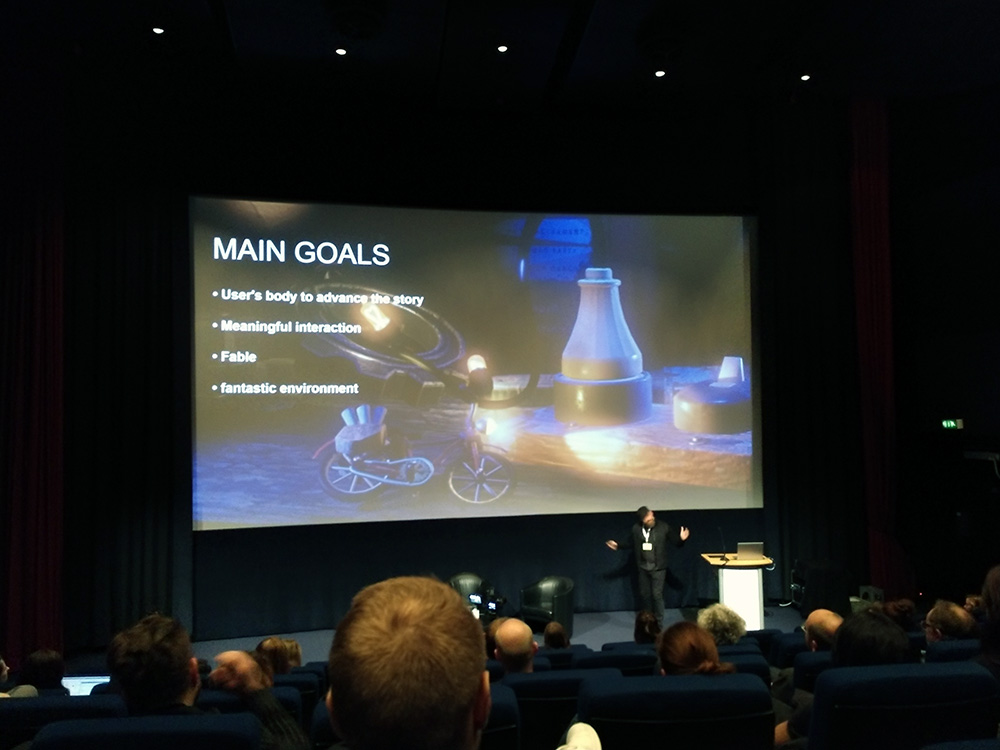
Cinematic VR installation 
Industrial VR application
Whereas virtual production technologies enhance and accelerate digital image works for the silver screen, immersive videos try to expand the flat screen into the three dimensional world. According to the lectures and panels at MediaTechCon, immersive storytelling slowly progresses in finding out the dos and dont’s of VR cinematics. But headset usage seems to be restricted to rather brief periods of watching, favoring the distribution of episodic short films between 5-10 minutes of length over extended cinematic experiences.
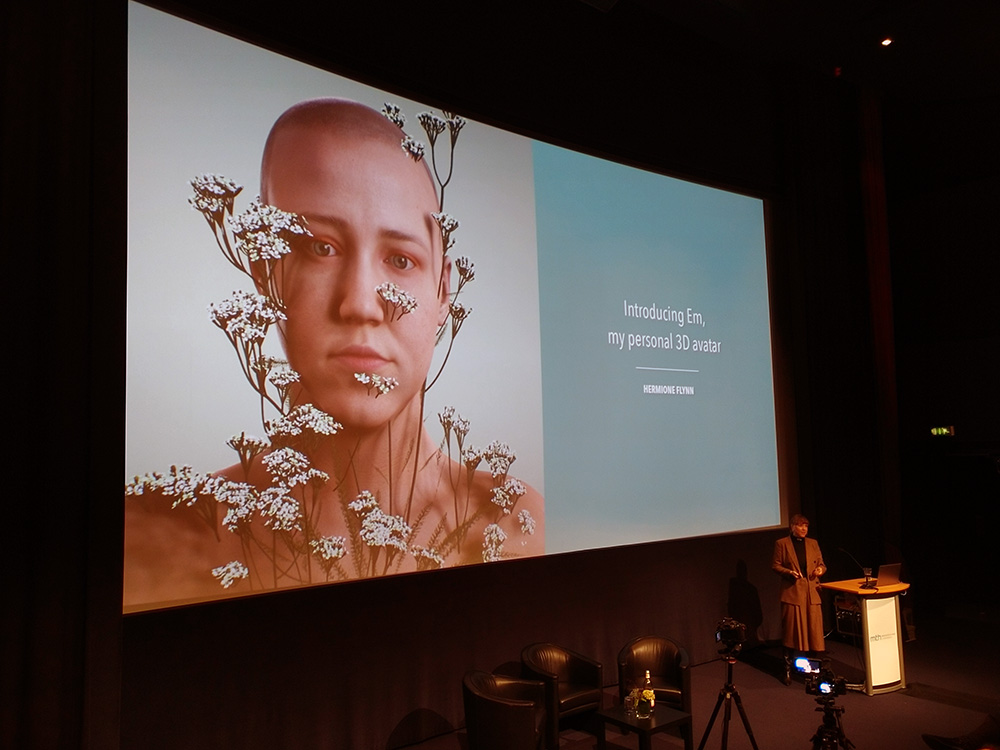
Virtual model 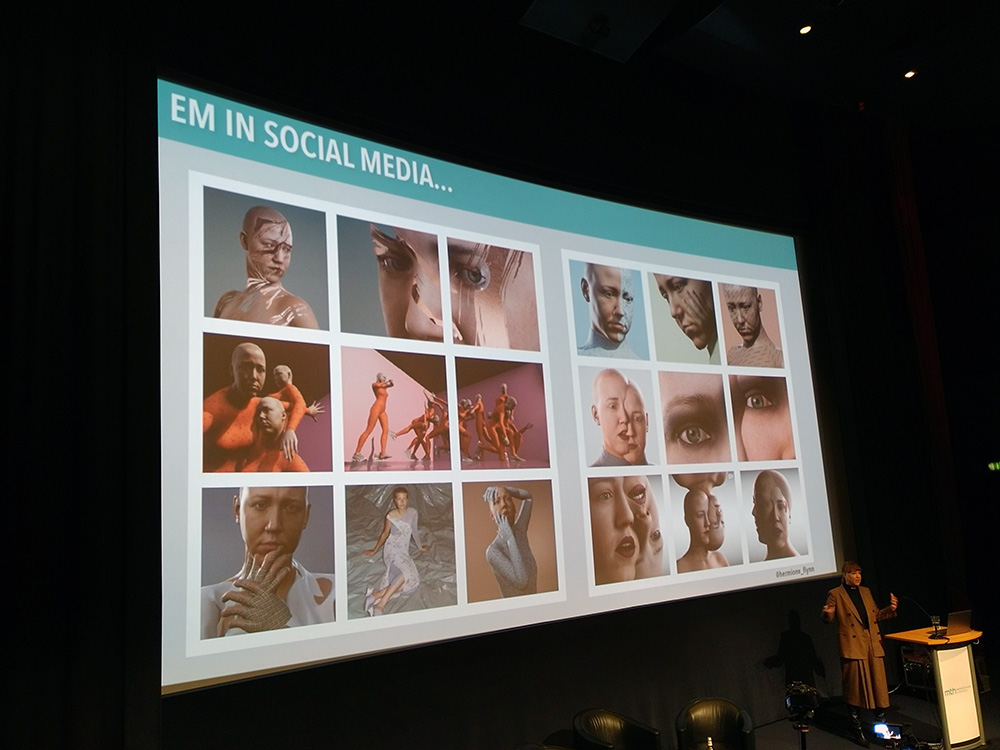
Avatar catwalk
VR filmmakers and festivals therefore turn to cinematic installations to deepen the cinematic VR experience. ‘Walk-in’-films want to combine volumetric video technology with interactive viewing controls and roomscale headset tracking to provide an experience beyond screen and goggle watching. It would have been very interesting to see and to experience these upcoming local presentation platforms during the convention. But apart from demos on Oculus Go headsets, there was no exhibition of VR works anymore. Volumetric studio tours again focused more on the digital film and TV production process than on showcases of convincing VR attractions. Cinematic VR installations can certainly help to expand the panoramic film experience. The question remains if their restriction to a specific location prevents them from becoming a more generalized distribution platform for VR.
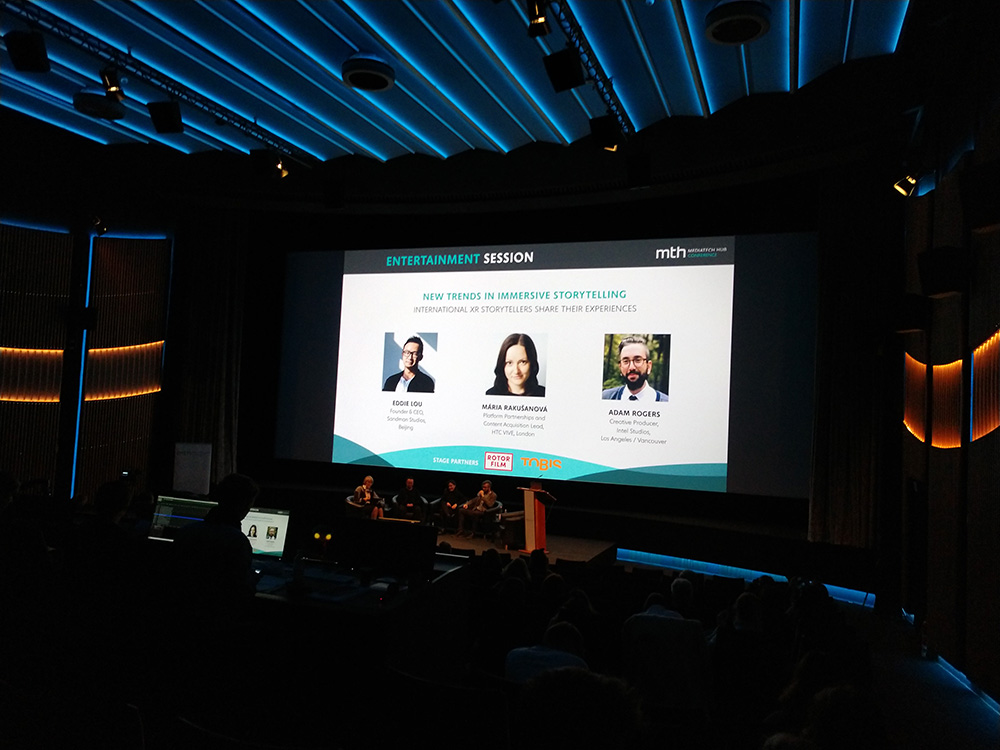
Panel on Immersive Storytelling
The specific location of MediaTechCon 2019 could be seen and experienced in all parts of the show – the streamlining for film production, the lecturing in movie theatres, the video presentation of VR experiences: Studio Babelsberg still is a film oriented environment and not yet a spaceport for launching into virtual reality. Because for successfully launching in VR, you first have to ignore traditional media constraints. There is no flatland anymore.

